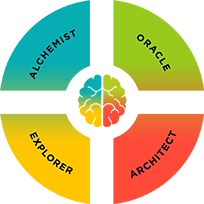Video Version
Text Version
Total Reading Time: 6 minutes.
Why Is Hiring So Difficult?
Hiring is one of the most difficult things to do. But it’s also one of the most important.
We all know that if we can align ourselves with the right people and bring in the best talent, that’s what will take a company or a business to the next level. And if you’re working for a company and responsible for doing the interviews, there’s an equal responsibility there.
If you’re starting to scale as a solopreneur/entrepreneur and you’re bringing on different kinds of people into your business, it’s absolutely critical when you’re a team of 2, 3, 4 or 5 people, right?
One of the ways that I learned to interview is from my days at Google. Google has a very specific set of protocols and a methodology they follow for every single interview.
Every single new hire has to go through this interview process, which consists of 4 categories through which we rate people.
The Process
As a former Googler, I’ve used this exact strategy when I was interviewing people, also, when I was being interviewed to get my job at Google.
I still continue to use this strategy when I bring in new candidates that I’m working with at my businesses and my company. Even when I’m hiring a contractor to work on a project, I’m still putting them through this process.
Here are the 4 buckets:
- General Cognitive Ability
- Leadership
- Job-Related Skills
- Googliness (will change depending on the culture of the company)
1) General Cognitive Ability
General cognitive ability is a really fancy way of saying, “How smart is this person?”. (And I’m not referring to their IQ or their EQ.)
How does this person think?
That is what Google is trying to uncover with their tricky questions when they ask you thins like, “Do you get wetter when you run or walk through the rain?” Or when they ask you, “How long will it take to clean every window of a skyscraper?”
When they ask you these types of mentally stimulating questions, it is not about the result of the question. It’s not about getting to the right answer. It is about watching the way the person thinks and observing their thought process.
It doesn’t require being a genius. It just requires thinking critically step-by-step and showing that there is a logic behind your thinking.
So, when you’re interviewing someone, ask them a challenging question that stimulates their thinking, and allow them to show you their thinking. That’s it.
2) Leadership
Is this person naturally a leader? The way I like to think about this is how Mark Zuckerburg once said that he only hires people he would work for himself.
How crazy is that?
The CEO of Facebook says he only hires people that he would be willing to work for himself.
The next time you hire somebody and you’re going, “Oh I just really need to fill this role and we really need this person” and you are just doing it for the short term, you will probably regret it because it doesn’t pass the threshold of leadership.
This person should be willing to grow within the role and the company. So, it’s very important that they want to take on leadership.
3) Job-Related Skills
The 3rd thing is going to be your Job-Related Skills.
The question we’re trying to answer is, “Does this person have the actual skills they need to be successful in this role.”
Some jobs require hard skills such as being able to program in a certain language.
Other jobs, such as a sales role, requires a person to have high emotional intelligence. Extremely high work ethic. A desire to really crush and hit quotas. Does this person have a history of hitting their quota?
Here’s the question I like to ask people to really check the box off for job-related skills…
First, I tell people I don’t care at all what it says on their resume. Those are just words. I don’t give a shit what people say they have done in the past. What I care about is what they have you actually done and can do.
So ask them, “What pieces of this job can you actually do today, and can you prove it or show me examples?”
When I’m going to hire a designer, I ask the designer to show me that they’ve done this exact type of work in the past. If they’ve done it and they nailed it, they clearly check off the job-related skills bucket.
So, ultimately, it’s about getting people in the door who have actually done the work already.
4) Googliness
Finally, what Google calls Googliness. Which is just another way of saying, “Does this person benefit the culture of our company?”
If you don’t know what the culture of your company is, you’re in trouble.
If you’re working for a company and all they have is a lame 200-word vision statement they found in a magazine, that’s your opportunity to go talk to your boss and help them come up with a better vision.
As Simon Sinek has famously said, we all need to know what our why is.
If you’re a solopreneur or an entrepreneur with a small business, you better know what your why is.
You better know what your vision is so that you know your culture because that becomes the final filter. When people pass through that filter and they fit into your company’s culture, they will become attracted to you as a result of having that why in the first place.
You will attract a certain kind of person because your company exudes that why and exudes that vision. People know what you stand for. There’s no mystery about it.
Your vision is clear and people know exactly what you stand for. If that person checks off that final box, then you are good to go.
Those are the 4 categories that Google uses to hire every single employee and attract the world’s best talent.
I highly recommend you try this out in your own company because I’ve been doing it for years and it’s a great way to find people — and ultimately — that’s one of the only ways to grow.
##
Photo credit: Interview — CC license






